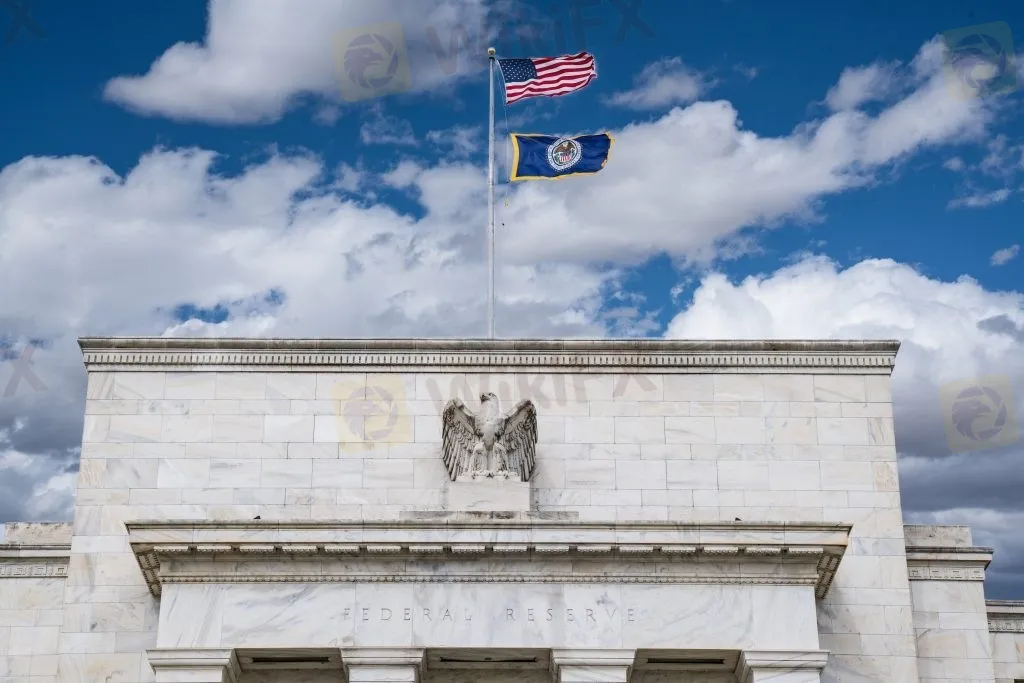简体中文
繁體中文
English
Pусский
日本語
ภาษาไทย
Tiếng Việt
Bahasa Indonesia
Español
हिन्दी
Filippiiniläinen
Français
Deutsch
Português
Türkçe
한국어
العربية
The Interest Rate Dilemma: A Week of Reckoning for Central Banks
Abstract:This attention of investors for this week attention is fixated on the actions of central banks, particularly the Federal Reserve and the European Central Bank (ECB).

This attention of investors for this week attention is fixated on the actions of central banks, particularly the Federal Reserve and the European Central Bank (ECB). The backdrop to this anticipation has been set by the unexpected rate hikes from the Reserve Bank of Australia and the Bank of Canada, which occurred last week. These moves, contrary to the prevailing consensus, have not only sent ripples through the financial markets but also reshaped the discourse around the durability of current interest rates. The financial community is now confronting the stark realisation that the much-anticipated rate cuts may not materialise this year and possibly might not surface until well into the next year.
One of the primary hurdles confronting central banks globally is the persistent challenge of core inflation that remains resistant to control. This unyielding predicament has been aggravated by the unexpected rate increases observed last week. Consequently, there is a growing belief that the previously anticipated “pause” by the Federal Reserve in rate alterations may no longer be a certainty. As of the composition of this writing, the likelihood of a 25 bps increase stands marginally below 30%.
With the ECB seemingly on the brink of a 25 basis point rate increase this week, a move expected to be mirrored by the Swiss National Bank and the Bank of England in the following week, the Federal Reserves stance might increasingly appear as an outlier. This divergence becomes even more pronounced in light of the recent indications of Fed policymakers. Before entering their media blackout period, these policymakers hinted strongly at a potential hiatus in rate adjustments in June, coupled with the possibility of another hike in July.
Nevertheless, the landscape of global finance is constantly shifting, and recent developments have further muddied the waters. OPEC+, a group of major oil-producing countries, has announced another round of production cuts. Meanwhile, the prospect of higher agricultural commodity prices looms on the horizon, spurred by the sabotage of a Ukrainian dam, which resulted in widespread flooding of farmland.
Inflationary pressures remain a pervasive challenge, with inflation rates stubbornly exceeding the target rate for all central banks. This raises a critical question: in the face of these pressures, can the U.S. Federal Reserve realistically affords to hit the pause button? Or, given the deflationary pressures emanating from China, is their cautious approach actually a prudent strategy?
Economic growth is already showing signs of deceleration in China in the post-pandemic era. Europe, Germany, and the EU are confronting a technical recession, with the UK possibly on a similar trajectory. Demand for oil and gas is also slowing, adding another layer of complexity to the situation. The decisions made by central banks this week could play a pivotal role in determining their future course of action. These decisions will indicate how much further central banks are willing to push before offering any insights into when they expect to halt the cycle of rate hikes.
The trajectory of inflation, the longevity of current interest rates, and the sustainability of economic growth across the globe are all hanging in the balance and the decision which these central banks will take will most likely give direction to the markets.

Disclaimer:
The views in this article only represent the author's personal views, and do not constitute investment advice on this platform. This platform does not guarantee the accuracy, completeness and timeliness of the information in the article, and will not be liable for any loss caused by the use of or reliance on the information in the article.
Read more

Italian Regulator Warns Against 5 Websites
The Italian regulator, CONSOB has issued a warning against five websites offering unauthorized financial services. This regulatory action aims to protect the public from fraudulent activities.

Broker Review: What is FXTM exactly? Is FXTM a Scam?
FXTM is a global forex broker founded in 2011. In today’s article, we are going to show you what FXTM looks like in 2024.

Countdown to WikiEXPO Dubai 2024 — “Seeing Diversity, Trading Safely”
With the booming development of the global Fintech industry, WikiEXPO Dubai 2024, hosted by WikiGlobal and co-organized by WikiFX, will officially kick off on November 27, themed “Seeing Diversity, Trading Safely.” This event will bring together global elites to explore the future of Fintech.

CySEC Revokes UFX Broker Licence as Reliantco Halts Global Operations
The Cyprus Securities and Exchange Commission (CySEC) has officially withdrawn the Cyprus Investment Firm (CIF) licence of Reliantco Investment Limited, the operator of UFX.com. This decision followed a six-month period during which the company failed to provide any investment services or perform investment activities.
WikiFX Broker
Latest News
What Makes Cross-Border Payments Easier Than Ever?
Trader Exposes Unethical Practices by STP Trading
Italian Regulator Warns Against 5 Websites
Currency Calculator


